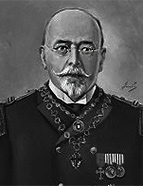

Seeking to reconstruct past events, Almeida d'Eça recalled that "Every man is of his time, and can only be evaluated when viewed within that context; this is why it is good criticism, both convenient and indispensable, to study the time in order to appreciate the man” (A Obra Scientífica do Visconde de Santarém, p.7). He closely followed the works of the Viscount of Santarém and Latino Coelho, as well as Alexander von Humboldt, the driving force behind modern geography, to which he associated Major Guizot, Frédéric Lacroix, and Engelmann. As Noções elementares de Geografia, Cronologia e Corografia de Portugal [Elementary Notions of Geography, Chronology, and Chorography of Portugal], a synthesis by the Naval School teacher, became one of the most widely used geography textbooks in schools, from Jaime Moniz's 1894 curriculum reform until the introduction of Republican programmes for primary education in 1921. In Almeida d'Eça's view, "Geography should be considered and recognised as the compendium, the transcript, the synthesis of all human knowledge” (Ibidem, pp. 10-11). He believed that maritime discoveries were the most significant aspect of studying the history of geography (Maritime Voyages and Discoveries p. 5). In the times following the Discoveries, there was a tendency among certain foreign authors to downplay Portugal's significant role, diminishing the glory that rightfully surrounded the Portuguese nation (Viagens e Descobrimento, p. 38). Almeida d'Eça's foray into biography is also noteworthy, as he studied the lives and works of Admirals José Baptista de Andrade and Carlos Testa, as well as the works of Luciano Cordeiro, Prince Henry the Navigator, and Afonso de Albuquerque.
